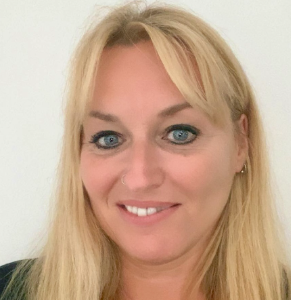What is the Best Age to Learn a New Language?

Few people are lucky enough to have been raised with two languages and grow up speaking fluently in both. Growing up abroad or with multi-national parents can be a huge boost to language learning. Kids who speak two languages around the house are often bilingual before they hit their teenage years. This begs the question, is there an optimal age for learning a new language?
For many, it is a dream to be able to speak fluently in two languages or more, some have tried to achieve it in their retirement or as a challenge later in life, some may be learning for their whole life but never quite master it. Whatever your challenge is, learning a new language requires a lot of brainpower, memory and practice. It’s commonly thought that it’s easier to master foreign tongues as a child but is that true?
The way that a child’s brain is wired they are able to learn new information much faster than an adult. Learning language is part of their brain chemistry. They are built to absorb information in all aspects and they do this in an unconscious state too. However, adults and older children have to consciously sit down and tell their brain to learn the information, i.e revising and vocab tests etc.., Which makes it much harder.
A study from Harvard University also went out to find the answer to this question. They created a survey that at its peak was completed over 100’000 times a day and shared over 300’000 times on Facebook. Based on people’s grammar scores and information about their learning of English, the researchers developed models that predicted how long it takes to become fluent in a language and the best age to start learning.
The study found that people are best at learning a new language up until the age of 18, any older and there is a steep drop-off. In order to gain complete fluency, learning the new language should start before the age of 10.
A linguist’s ability to learn a new language can be influenced by all aspects of their life. The reasons that it is significantly harder after the age of 18 though can be broken down into three main areas.
Lifestyle Changes
After they have left school, kids no longer have the time or learning environment required to really get to grips with a new language.
Brain development
Changes in the brain structure and development that continue to occur up until the early 20s have been indicated to affect learning. Particularly foreign and new skills like language and the understanding of unseen mathematical theories.
Influences from their native tongue
By 18, the young adult has been speaking their own language for a very long time. Each language has its own layout and set of rules, getting too comfortable with these can affect how you interpret new linguistic styles and make it harder to accept new ideas.
Having said that, it is not impossible to master a new language after your twenties and adult linguists find it very rewarding.
Here are some useful tricks to help learn a language quickly
Watch foreign Television
Everyone’s favourite lazy way to learn a new language. We love to convince ourselves that it works but does it really?
The answer is yes! Although you will need to be actively learning the grammar, vocab and punctuation and use your TV shows as a supplement. Listening to the words while reading subtitles in your own language will help you associate the correct words and sounds with what you know the English word to be.
Read foreign news
Reading is one of the most important areas that you will need to grasp, alongside speaking, listening and writing. All come with their own challenges and each one of us struggles in a different area.
Reading the news is particularly beneficial. The style of writing used in Newspapers and other forms of news is always very correct and traditional, reading these texts regularly can accelerate your understanding of language rules and verb-noun arrangements.
Speak to as many natives as possible
This one should be obvious. Any interaction that you can get with native speakers of your desired tongue is incredibly helpful. With every language, there are subtleties and local adjustments that you just can’t pick up from a textbook. A local will also be able to help you learn phrases and greetings that will make your communication when abroad much more natural.
Looking for a tutor?
Sherpa has hundreds of qualified and experienced UK tutors who are ready to help you achieve your goals. Search through our tutors and arrange a free 20 minute introduction through our industry-leading online classroom.
Find a TutorSimilar Articles




